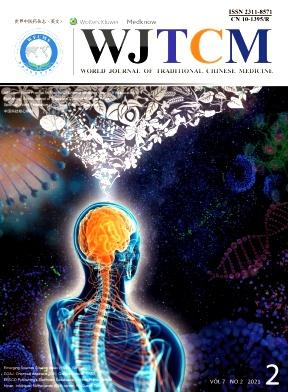Effect of herb-partitioned moxibustion on structure and functional prediction of gut microbiota in rats with irritable bowel syndrome with diarrhea
IF 3.2
3区 医学
Q1 INTEGRATIVE & COMPLEMENTARY MEDICINE
引用次数: 0
Abstract
Objective: The objective of this study was to observe the effect of herb-partitioned moxibustion (HPM) on the gut microbiota of rats with diarrhea-predominant irritable bowel syndrome (IBS-D). Materials and Methods: A total of 48 male rats were randomly divided into a normal control group and an irritable bowel syndrome (IBS) model group. Using acetic acid irrigation and constraint stress, an IBS-D rat model was developed. After the model was made, the IBS rats were divided into IBS, HPM group, and pinaverium bromide (PB) group. The HPM received HPM for 20 min every day, while the PB was given gastric perfusion once a day for 14 days. After modeling and treatment, the abdominal withdrawal reflex, fecal character score, and fecal water content of rats were scored, and a 16S rRNA sequencing analysis was performed on the gut microbiota. Results: After treatment, the fecal character score and fecal water content in the HPM increased significantly, while visceral sensitivity decreased. Investigation of 16S rDNA sequencing revealed that α-diversity was reduced in the IBS, and HPM could increase the diversity of flora. The flora structure of IBS-D rats changed. HPM can increase the abundance of probiotics such as Akkermansia and reduce the abundance of opportunistic pathogens such as Bacteroides and Prevotella. Functional prediction analysis showed that the HPM was mainly related to the bacillary secret system, tricarboxylic acid cycle, and other pathways. Conclusion: HPM can regulate the gut microbiota of rats with IBS-D.中药隔灸对腹泻型肠易激综合征大鼠肠道菌群结构及功能预测的影响
目的:观察隔草灸对腹泻型肠易激综合征(IBS-D)大鼠肠道微生物群的影响。材料和方法:将48只雄性大鼠随机分为正常对照组和肠易激综合征(IBS)模型组。采用醋酸灌流和约束应激建立IBS-D大鼠模型。制作模型后,将IBS大鼠分为IBS组、HPM组和吡那韦铵(PB)组。HPM每天接受HPM 20分钟,而PB每天接受一次胃灌注,持续14天。在建模和治疗后,对大鼠的腹部戒断反射、粪便性状评分和粪便含水量进行评分,并对肠道微生物群进行16S rRNA测序分析。结果:治疗后,HPM的粪便性状评分和粪便含水量显著增加,内脏敏感性下降。16S rDNA测序结果表明,肠易激综合征的α-多样性降低,HPM可增加菌群的多样性。IBS-D大鼠的菌群结构发生了变化。HPM可以增加阿克曼菌等益生菌的丰度,降低拟杆菌和普雷沃氏菌等机会性病原体的丰度。功能预测分析表明,HPM主要与细菌秘密系统、三羧酸循环等途径有关。结论:HPM可调节IBS-D大鼠肠道微生物群。
本文章由计算机程序翻译,如有差异,请以英文原文为准。
求助全文
约1分钟内获得全文
求助全文
来源期刊

World Journal of Traditional Chinese Medicine
Medicine-Complementary and Alternative Medicine
CiteScore
5.40
自引率
2.30%
发文量
259
审稿时长
24 weeks
 求助内容:
求助内容: 应助结果提醒方式:
应助结果提醒方式:


